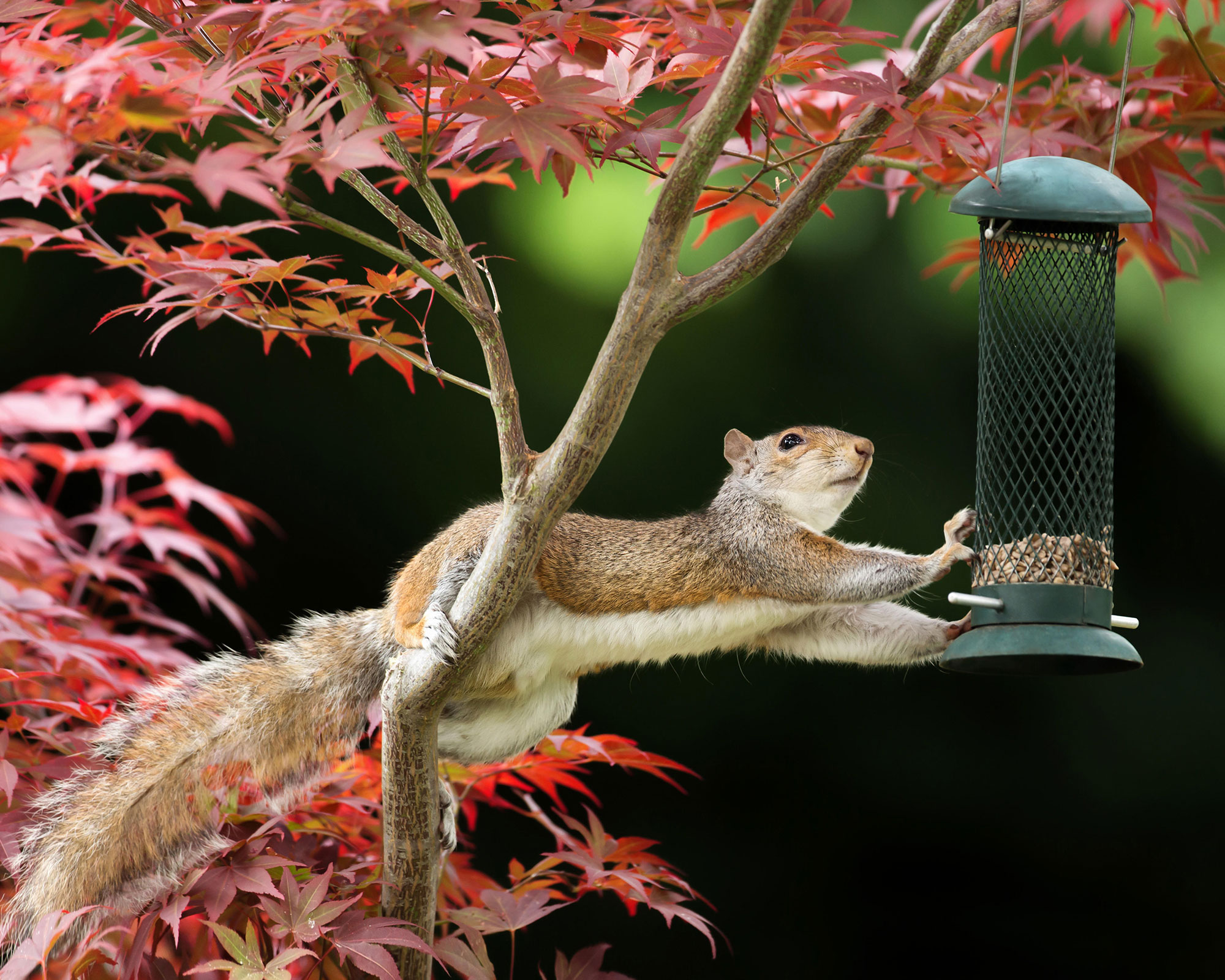Implementing Physical Barriers and Exclusion Methods
One effective method for deterring squirrels from accessing potted plants involves the use of protective netting and mesh. These durable materials are draped over pots or secured as barriers around the container garden to prevent squirrel intrusion. Properly installed netting and mesh provide practical and humane protection, ensuring that plants are shielded from potential squirrel damage while allowing for adequate airflow and sunlight. By creating a physical barrier that prevents squirrels from reaching the potted plants, gardeners can effectively mitigate the risk of damage to their container gardens while promoting ethical and humane protection for wildlife.
In addition to netting and mesh, metal guards and enclosures offer another layer of defense against squirrel activity. These sturdy barriers effectively deter squirrels from accessing potted plants, ensuring that containers are securely shielded from potential damage. The durable construction and strategic placement of metal guards and enclosures are essential for safeguarding the integrity of container gardens, providing a reliable and ethical method of protecting plants while respecting the natural behaviors of squirrels.
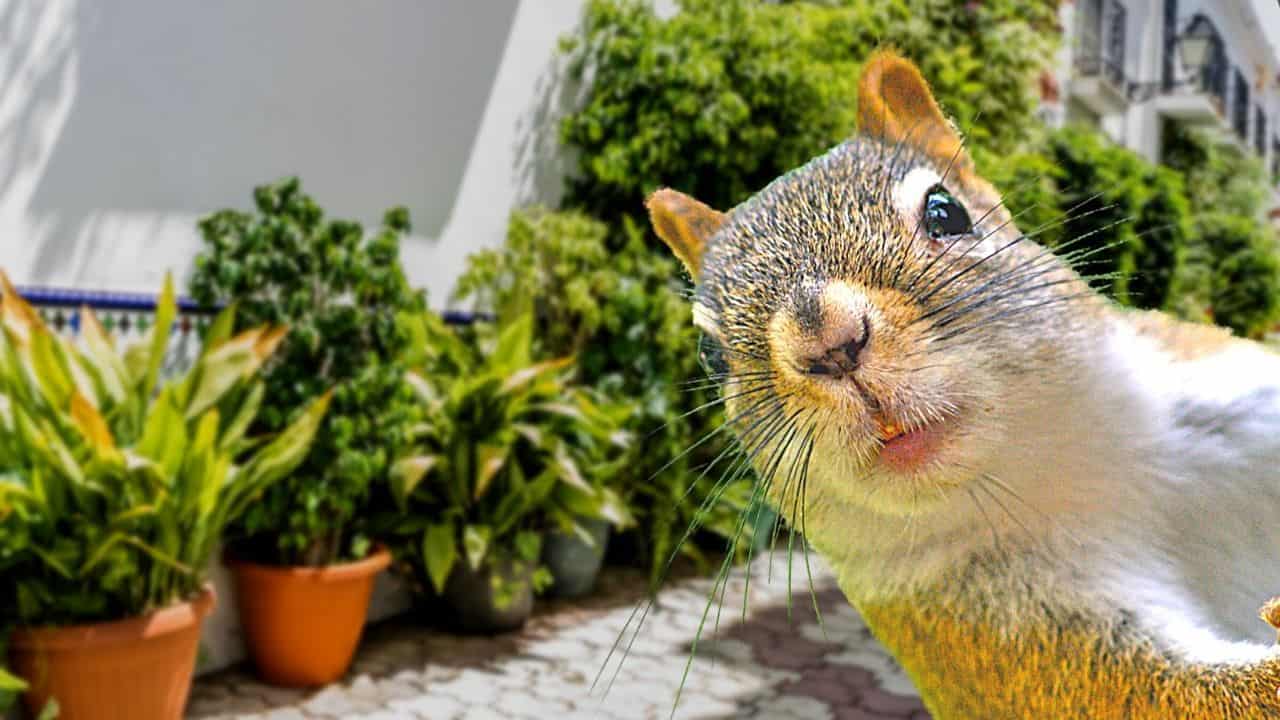
I. Understanding the Impact of Squirrels on Container Gardens
A. Analyzing Squirrel Behavior and Its Effects on Potted Plants
Squirrels, while charming and ubiquitous in outdoor settings, can pose a significant challenge to container gardening. These agile and omnivorous creatures have a propensity to dig and forage, often causing damage to potted plants. From uprooting young plants while searching for food or burying their caches to feeding on tender shoots, flowers, and fruits, squirrels can disrupt the aesthetic and growth of container gardens. Their activities may also lead to soil displacement, causing disarray and undermining the visual appeal of the green space.
B. Recognizing the Importance of Proactive Measures for Safeguarding Container Gardens
Understanding squirrel behavior and the potential damage they can inflict on container gardens underscores the need for proactive measures to protect these cherished green spaces. Recognizing the impact of squirrel activity on the aesthetics and growth of potted plants reinforces the urgency of implementing effective squirrel deterrence techniques to maintain the vitality of container gardens.
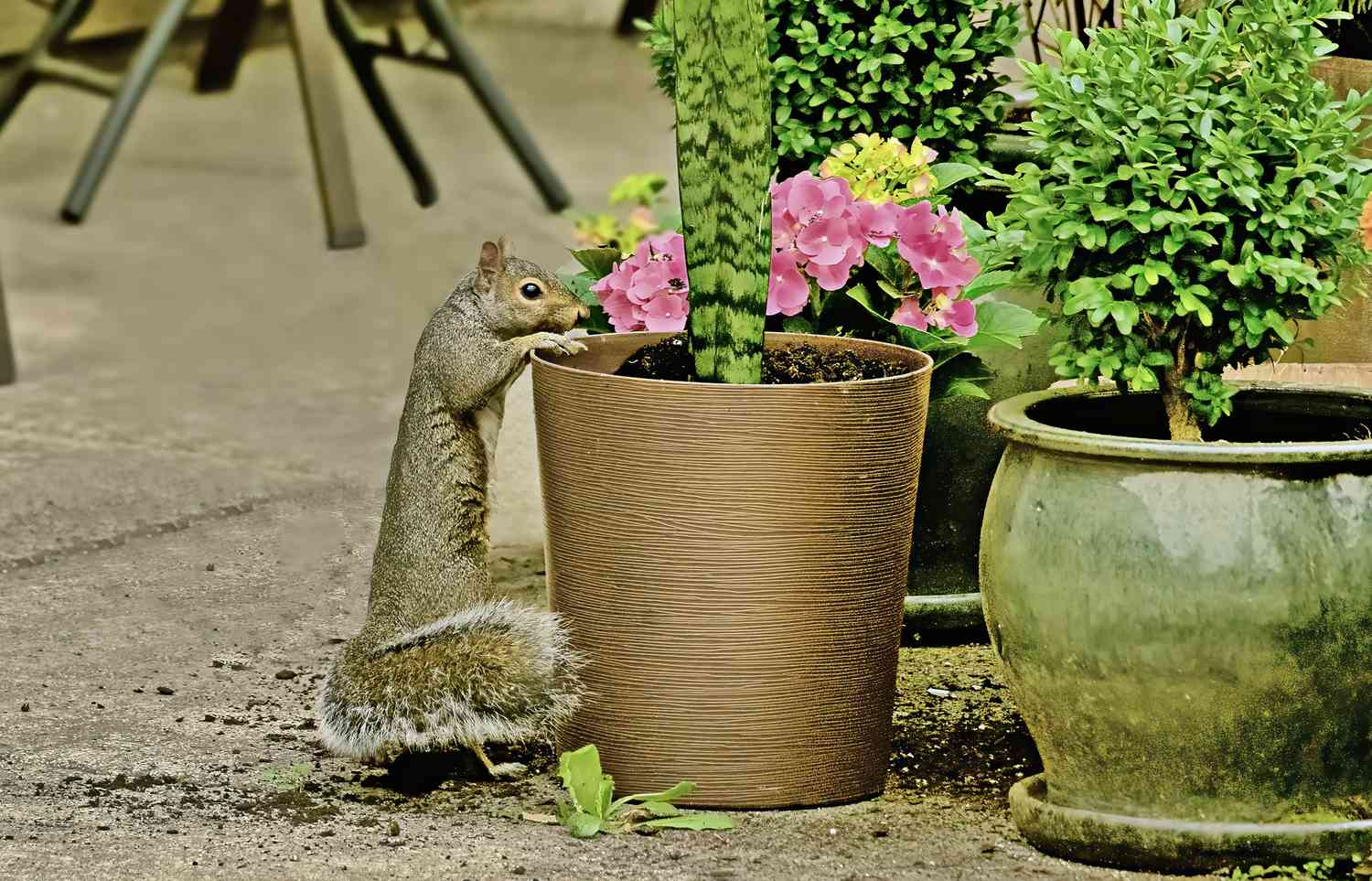
II. Implementing Physical Barriers and Exclusion Methods
A. Utilizing Protective Netting and Mesh
One effective method for deterring squirrels from accessing potted plants involves the use of protective netting and mesh. These durable materials are draped over pots or secured as barriers around the container garden to prevent squirrel intrusion. Properly installed netting and mesh provide practical and humane protection, ensuring that plants are shielded from potential squirrel damage while allowing for adequate airflow and sunlight.
B. Applying Metal Guards and Enclosures to Secure Potted Plants
In addition to netting and mesh, metal guards and enclosures offer another layer of defense against squirrel activity. These sturdy barriers effectively deter squirrels from accessing potted plants, ensuring that containers are securely shielded from potential damage. The durable construction and strategic placement of metal guards and enclosures are essential for safeguarding the integrity of container gardens.
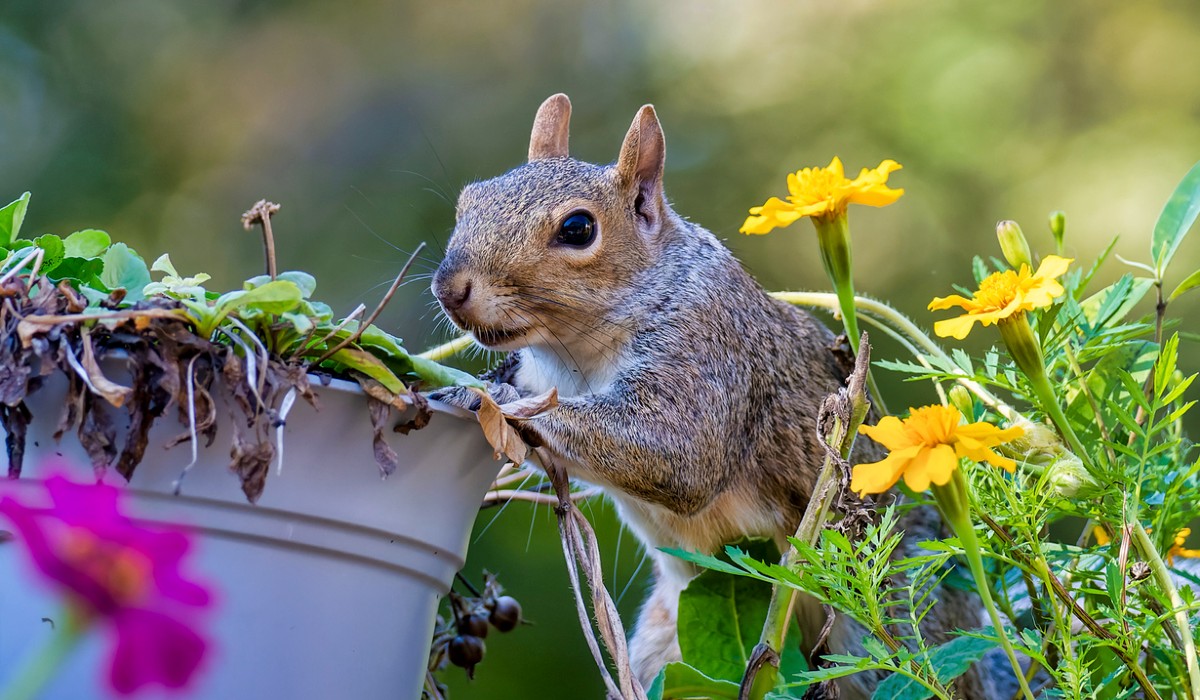
III. Natural and Home Remedies for Squirrel Deterrence
A. Employing Scent-Based Deterrents to Discourage Squirrel Intrusion
Natural repellents, such as predator urine or strong-smelling substances like cayenne pepper, can create an olfactory deterrent effect, discouraging squirrels from approaching flower pots. By applying these scents around the garden area, gardeners can effectively deter squirrel intrusion while ensuring the ethical treatment of wildlife.
B. Enhancing Plant Borders with Spiny or Unpleasant Substances
Creating an unwelcoming environment for squirrels can be achieved by bordering flower pots with rough or spiky textures such as gravel, mulch, or prickly plants. These unpleasant substances serve as physical barriers, deterring squirrels from approaching and potentially damaging potted plants. Careful selection and application of these materials are essential to creating effective deterrents.
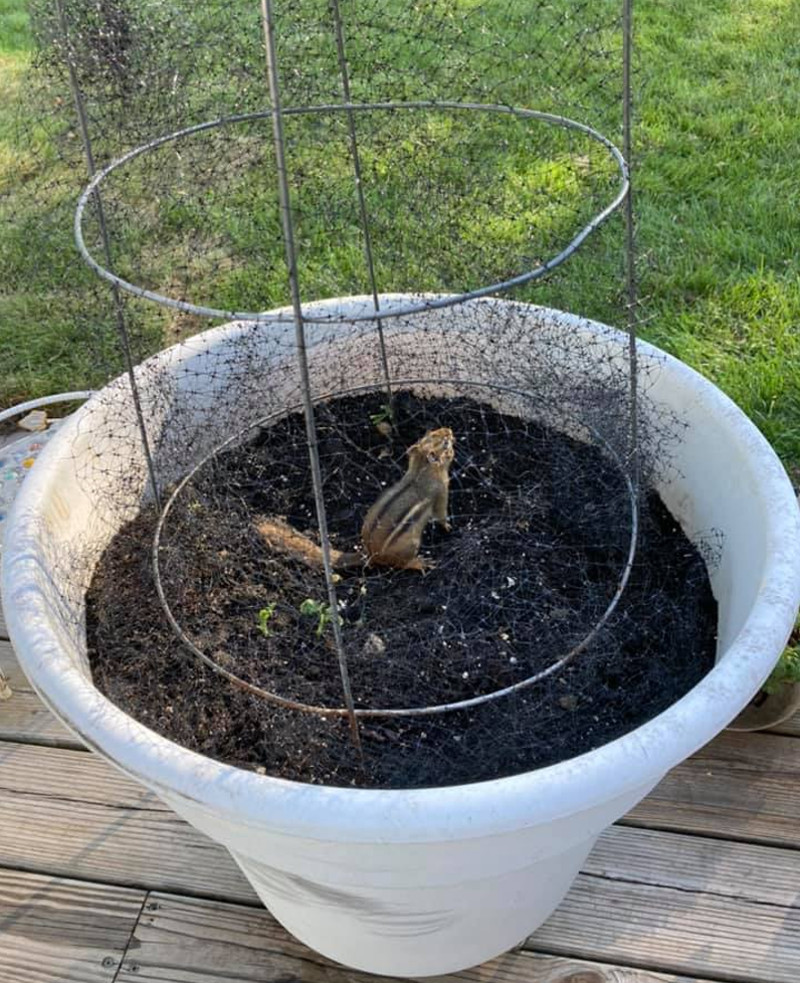
IV. Implementing Visual and Auditory Deterrents
A. Utilizing Motion-Activated Devices to Startle and Deter Squirrels
Motion-activated sprinklers, lights, or auditory deterrents offer a non-harmful yet effective means of deterring squirrels from approaching potted plants. These devices startle squirrels, encouraging them to avoid the garden area, while providing an ethical and humane method for protecting container gardens.
B. Incorporating Visual Distractions and Scare Tactics for Squirrel Deterrence
Visual deterrents, such as reflective objects, hanging CD disks, or scarecrow-like items, disrupt squirrel activity, creating an unappealing environment that encourages them to avoid the area. Carefully placing and rotating visual deterrents is essential for maintaining their effectiveness and promoting ethical squirrel deterrence practices.
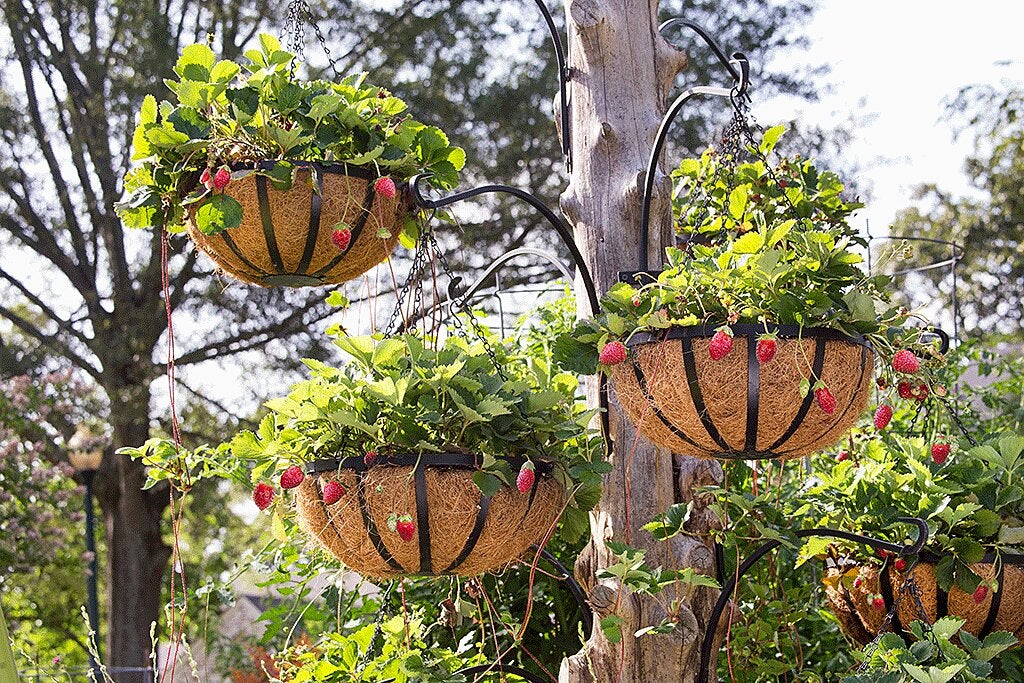
V. Creating a Squirrel-Friendly Distraction Area
A. Establishing a Separate Feeding Station to Divert Squirrels’ Attention
Providing an alternative feeding location, such as a designated squirrel feeder, diverts the attention of squirrels away from flower pots to a suitable feeding area. Strategically placing and maintaining squirrel feeders help redirect squirrel behavior away from container gardens, fostering ethical practices and coexistence with wildlife.
B. Implementing Squirrel-Friendly Plantings Away from Main Container Gardens
Strategically integrating specific plants or flowers that are appealing to squirrels away from the main container garden creates a designated area that encourages squirrel activity without posing a risk to potted plants. Carefully chosen squirrel-friendly plantings redirect squirrel behavior, promoting ethical and humane wildlife management in container gardening.
VI. Monitoring and Adapting Deterrence Strategies
A. Assessing the Effectiveness of Implemented Squirrel Deterrence Techniques
Regular assessment and observation are critical to evaluating the effectiveness of implemented squirrel deterrence methods. Monitoring signs of squirrel presence or damage provides valuable insights into the success of these techniques, guiding the ongoing protection of container gardens.
B. Adaptation and Refinement of Deterrence Practices Based on Squirrel Behavior
Flexibility and adaptability in adjusting squirrel deterrence strategies based on the observed behaviors and responses of squirrels are essential for maintaining effective protection of potted plants. Continuously refining deterrence practices ensures that container gardens remain safeguarded from potential damage while promoting ethical and humane wildlife management.
In conclusion, safeguarding container gardens from potential damage caused by squirrels requires a combination of proactive measures and adaptable strategies. By implementing a range of effective squirrel deterrence techniques, gardeners can protect their container gardens while promoting ethical and humane wildlife management. Regular monitoring and adaptation of these methods are crucial for maintaining their effectiveness and ensuring sustained protection for container gardens. Through thoughtful consideration and application of squirrel deterrence strategies, gardeners can create a harmonious and flourishing environment for their plants, free from the unwelcome intrusions of squirrels.
Overall, these effective squirrel deterrence techniques provide ethical and humane protection for container gardens while fostering coexistence and harmony with wildlife in an outdoor environment.
